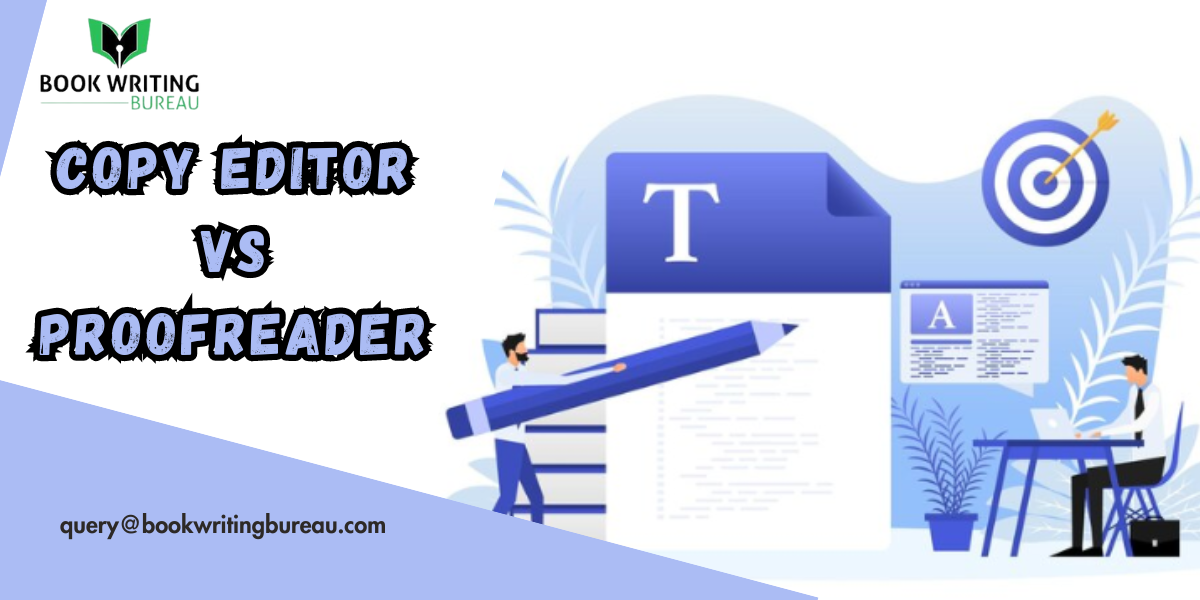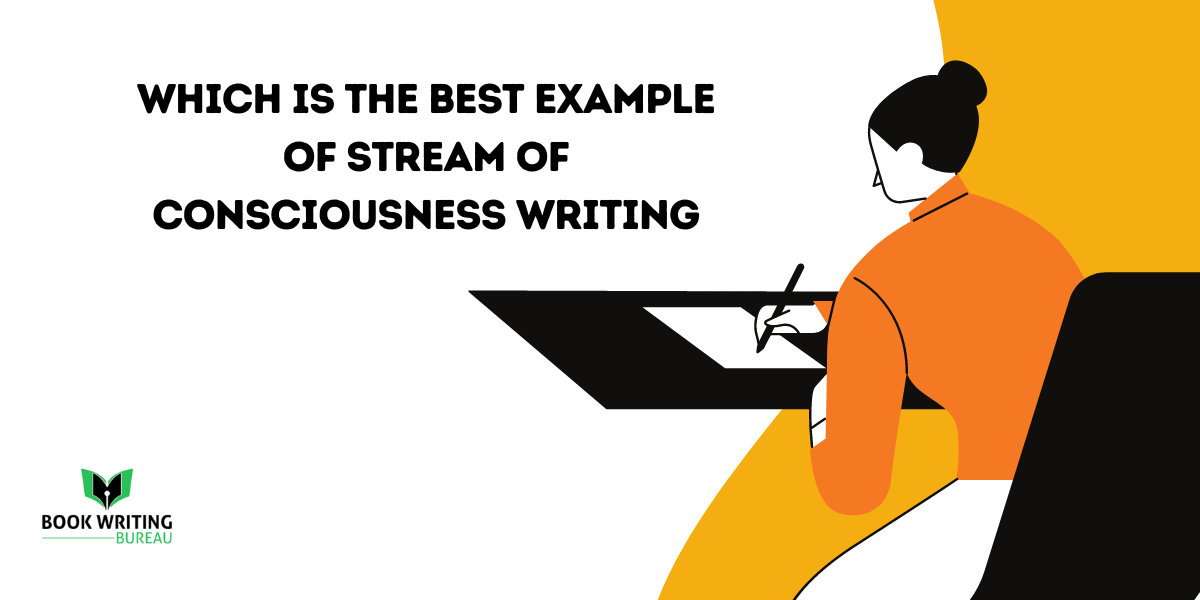
Writing
When you first look at it, the jobs of a copy editor and a proofreader might seem like they’re pretty much the same. Both involve going over written stuff carefully to fix mistakes. But if you look closer, you’ll see that they have different jobs, need different skills, and work at different times in the publishing process. Let’s take a closer look at each job, how they’re different, what skills you need, and how much money they usually make.
What Exactly Does A Proofreader Do?
The main difference between a proofreader and an editor is that a proofreader has a narrower focus. Their job is to check a piece’s surface details—like its spelling, grammar, and punctuation. They’re good at understanding how sentences are structured, making sure everything looks clean and easy to understand from start to finish.
Even though their role might seem small, eBook proofreaders play an important part. Even a tiny mistake, like a misplaced comma, can make writing seem less professional. So, publishers count on proofreaders to make sure their content is top-notch.
What Exactly Does A Copy Editor Do?
A copy editor does more than just fix spelling and grammar mistakes. They work on improving the overall quality of written content. This means making sure the writing flows nicely, makes sense, and matches the style of the publication or project. They might suggest sentence changes, fix awkward parts, and ensure everything looks consistent and accurate.
What Is the Difference Between Proofreading Vs Copy Editing?
Copy editing vs. proofreading are both crucial stages in the process of refining written content, but they involve distinct tasks and focus areas:
Proofreading:
- Proofreading is the final stage of reviewing a written document before it is published or shared.
- eBook proofreading services primarily involve checking for errors in spelling, grammar, punctuation, and typographical mistakes.
- Proofreading aims to ensure that the text is free from minor errors or inconsistencies that could distract or confuse the reader.
- Proofreaders typically focus on surface-level issues rather than deeper structural or stylistic elements.
- The main goal of proofreading is to produce a polished, error-free final draft.
Copy Editing:
- Copy editing is a more comprehensive process that occurs before proofreading and involves a closer examination of the text.
- Copy editing addresses surface-level errors and focuses on improving clarity, coherence, style, and overall readability.
- Copy editors may make revisions to sentence structure, word choice, and paragraph organization to enhance the flow and effectiveness of the writing.
- They may also correct factual inaccuracies, inconsistencies, or logical flaws in the content.
- Copy editing also ensures that the text adheres to the appropriate style guide or editorial standards.
Copy Editor vs. Proofreader: Job Description
Think of copy eBook editors as the guardians of language. Their job is to carefully examine text to make sure it’s clear, makes sense, and follows grammar and style rules. They’re like detectives searching for inconsistencies or mistakes in how the words are put together. Their main goal is to make the text easier to understand and more enjoyable to read, all while keeping the original author’s voice and meaning intact.
Proofreaders, on the other hand, focus on the nitty-gritty details. Once the copy editor has edited and polished the text, the proofreader steps in for a final check. They have sharp eyes for catching any last-minute errors in spelling, punctuation, or how the text is laid out on the page. They’re like quality control experts, ensuring the final version of the text is flawless and ready to be seen by the world.
Copy Editor vs. Proofreader: Skills Required
Copy editors need to be good at analyzing text. They must understand grammar and style rules well and be able to notice even subtle differences in how something is written. They also need to be able to pick up on the tone and style of the original author.
Proofreaders are like super sleuths for mistakes. They excel at finding typos (like misspelled words), inconsistencies (like using “its” instead of “it’s”), and formatting errors (like weird spacing or font issues). They’re the final checkpoint to make sure everything looks perfect before it goes out.
Copy Editor vs. Proofreader: Education and Training
A degree in English, journalism, or communications can be helpful, but it’s not always necessary. Many people learn the ropes of copy editing and proofreading while doing the job. They pick up skills and techniques as they work. Some take specific courses or workshops to learn more about copy editing and proofreading. These can provide focused training and skills development.
Getting certified by organizations like the Editorial Freelancers Association or the American Copy Editors Society can add credibility to your skills and expertise in the field. It shows that you’ve met certain standards and can be trusted as a professional in the industry.
Copy Editor vs. Proofreader: Key Differences
Copy Editor:
This person works extensively with the text, improving its quality. They refine the structure, flow, and clarity of the writing.
Proofreader:
Their main job is to check the text for any mistakes before it’s published. They look for errors like typos, grammar issues, or formatting inconsistencies.
Analogy:
Copy Editing:
Imagine it like shaping a rough block of marble into a beautiful sculpture. Copy editors work on the core content, making it polished and well-structured.
Proofreading:
It’s like putting the final touches on a painting. Proofreaders ensure that everything looks perfect and no small flaws are left before the work is considered complete.
Copy Editor vs. Proofreader: Collaboration and Workflow
Copy editors and proofreaders work together closely during the editing process despite having different roles.
Copy editors help authors by giving feedback and making suggestions to improve the content. They focus on things like clarity, consistency, and overall quality.
On the other hand, proofreaders carefully check the final version of the content to ensure all the changes suggested by the copy editor have been made correctly. They look for errors in grammar, spelling, punctuation, and formatting.
Even though they have distinct tasks, copy editors and proofreaders collaborate to ensure the final product is top-notch in quality and accuracy. Their teamwork ensures the content is polished and error-free before being published or shared.
Copy Editor vs. Proofreader: Salary Comparison
Regarding compensation, copy editor salaries typically command higher than proofreader salaries, reflecting the broader scope of their responsibilities. According to recent data, the average salary for copy editors ranges from $40,000 to $70,000 per year, whereas proofreaders can expect to earn between $30,000 and $50,000 annually.
Job Opportunities for Proofreaders and Copy Editors
There are opportunities for proofreader’s jobs and copy editor’s jobs in both freelance and traditional employment settings. Here’s a breakdown of each:
Freelance:
Platforms:
Many online platforms connect freelance proofreaders and editors with clients, such as Upwork, Fiverr, and Guru.
Clients:
They can work with various clients, including individual writers, businesses, marketing agencies, and academic institutions.
Projects:
Freelance work often involves various projects, from blog posts and articles to website content, academic papers, and books.
Traditional Employment:
Industries:
Common employers include publishing houses (books, magazines, journals), newspapers, academic institutions, marketing and advertising agencies, and government agencies.
Roles:
Job titles such as proofreader, copy editor, editorial assistant, or content editor can vary. Responsibilities often involve working on specific projects or publications within an organization.
Which Cities Pay the Most for Editor and Proofreader Jobs?
We’ve found ten cities where the typical salary for these jobs is higher than the average across the country. The top city is Berkeley, CA, followed closely by Daly City, CA, and San Mateo, CA. In San Mateo, CA, the average salary is $10,572 (or 17.7%), higher than the national average, while Berkeley, CA goes even further with an extra $16,873 (or 28.2%) above the national average of $59,809.
These ten cities offer editor and proofreader jobs with salaries higher than the national average, suggesting that moving to one of these cities could lead to better financial opportunities.
Another thing to consider is that the salary difference among these top cities is only 10% from Berkeley, CA, to Bellevue, WA. This shows that there might not be much room for higher wages. Considering the cost of living in these cities might be the most important factor when deciding where to work as an editor or proofreader.
Challenges and Rewards
While becoming a proficient copy editor or proofreader is undoubtedly challenging, the rewards are equally fulfilling. There’s a sense of satisfaction that comes from refining raw manuscripts into polished works of art, knowing that your expertise has helped to elevate the author’s message. However, the job comes with challenges, from tight deadlines to navigating complex editorial guidelines.
Future Trends
In the coming years, technological changes will greatly impact how proofreading and eBook editing services are done. People who edit and check for mistakes in written content need to adjust to these changes to stay up-to-date. Even though machines can help with some parts of the editing job, they can’t completely replace human editors’ careful thinking and creative decisions.
So, in the future, the key is to use technology to support and enhance human skills, not to take over the entire editing process. This way, editors can concentrate on the parts of their work that make them unique and valuable.
Tips for Aspiring Editors
For those who are starting book editing jobs, here are a few tips to help you succeed:
Practice Regularly:
Keep refining your editing skills by practicing consistently. The more you edit, the better you’ll become.
Learn Style Guides and Tools:
Get familiar with common style guides like APA, MLA, or Chicago Manual of Style, and learn how to use editing software and tools efficiently.
Connect with Peers:
Build a network of fellow editors, either online or through professional organizations. Seek guidance and mentorship from experienced editors offering valuable insights and advice.
Stay Updated:
Stay informed about the latest trends and technologies in the publishing industry. This includes advancements in editing software, changes in publishing standards, and emerging writing styles.
Embrace Lifelong Learning:
Keep an open mind and be willing to adapt to new challenges and opportunities for growth. Continuously seek learning opportunities to improve your skills and stay relevant in a constantly evolving field.
Which Career Is Right for You?
If you’re trying to decide which career path to take, consider the salary prospects and the workload involved. It’s worth noting that many people in these professions work as freelancers, earning income by the hour rather than receiving an annual salary. This setup can earn more than the typical salary figures mentioned earlier. Additionally, freelancers can expand their skill sets and offer additional services, increasing their earning potential further. So, consider these factors as you decide which career is the right fit for you.
FAQs
What qualifications do you need to be a proofreader?
To become a proofreader, you typically need a strong command of the language you’ll be proofreading in, whether English or another language. While a degree in English, journalism, or a related field can be beneficial, it’s not always required. What’s most important is a keen eye for detail, excellent grammar and spelling skills, and the ability to spot errors quickly and accurately.
How much does a proofreader make?
The salary of a proofreader can differ depending on factors such as location, experience, and the industry they work in. On average, proofreaders in the United States can earn between $30,000 and $50,000 annually. However, experienced proofreaders or those who work in specialized fields may earn more.
How much does a copy editor charge?
Copy editors typically charge by the hour or word/page. Hourly rates vary widely depending on the editor’s experience and the project’s complexity, but they often range from $25 to $50 per hour. Some copy editors may also offer flat rates for specific projects or services.
What degree do you need to be a copy editor?
While a degree in English, journalism, communications, or a related field can be advantageous for aspiring copy editors, it’s not always a strict requirement. What’s more important is a strong grasp of grammar, spelling, punctuation, and style guides and the ability to edit for clarity, coherence, and consistency. Many copy editors develop their skills through on-the-job training, workshops, and professional development courses.
Conclusion
In the constantly changing world of publishing, types of book editing play crucial roles as protectors of language. They make sure that written pieces are clear and accurate. Even though their jobs are slightly different, they both play vital parts in ensuring written work is top-notch. By understanding the unique aspects of each role and working together effectively, editors can keep improving written communication and making it even better.



